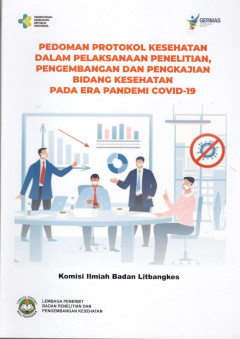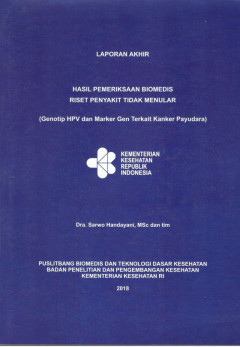Ditapis dengan
# Debug Box
/var/www/perpustakaan972/lib/SearchEngine/DefaultEngine.php:610 "Search Engine Debug 🔎 🪲"
Engine Type ⚙️: "SLiMS\SearchEngine\DefaultEngine"
SQL ⚙️: array:2 [ "count" => "select count(distinct b.biblio_id) from biblio as b left join mst_publisher as mp on b.publisher_id=mp.publisher_id left join mst_place as mpl on b.publish_place_id=mpl.place_id where b.opac_hide=0 and (b.biblio_id in(select ba.biblio_id from biblio_author as ba left join mst_author as ma on ba.author_id=ma.author_id where ma.author_name like ?))" "query" => "select b.biblio_id, b.title, b.image, b.isbn_issn, b.publish_year, mp.publisher_name as `publisher`, mpl.place_name as `publish_place`, b.labels, b.input_date, b.edition, b.collation, b.series_title, b.call_number from biblio as b left join mst_publisher as mp on b.publisher_id=mp.publisher_id left join mst_place as mpl on b.publish_place_id=mpl.place_id where b.opac_hide=0 and (b.biblio_id in(select ba.biblio_id from biblio_author as ba left join mst_author as ma on ba.author_id=ma.author_id where ma.author_name like ?)) order by b.last_update desc limit 10 offset 0" ]
Bind Value ⚒️: array:1 [ 0 => "%Sarwo Handayani%" ]

Status Kekebalan terhadap Difteri dan Tetanus Pada Anak Umur 5-6 Tahun Sesuda…
- Edisi
- -
- ISBN/ISSN
- -
- Deskripsi Fisik
- vii, 21 hlm. : ilus.; 30. cm.
- Judul Seri
- -
- No. Panggil
- BPK 1998 1
- Edisi
- -
- ISBN/ISSN
- -
- Deskripsi Fisik
- vii, 21 hlm. : ilus.; 30. cm.
- Judul Seri
- -
- No. Panggil
- BPK 1998 1

Polimorfisme Human Leucocyte Antigen Penderita Malaria dengan Gejala Klinis B…
- Edisi
- -
- ISBN/ISSN
- -
- Deskripsi Fisik
- 36 hlm. : ilus.; 30 cm.
- Judul Seri
- -
- No. Panggil
- BMF 2010 2
- Edisi
- -
- ISBN/ISSN
- -
- Deskripsi Fisik
- 36 hlm. : ilus.; 30 cm.
- Judul Seri
- -
- No. Panggil
- BMF 2010 2

Pedoman Protokol Kesehatan dalam Pelaksanaan Penelitian, Pengembangan dan Pen…
Masa pandemi Covid-19 merupakan situasi yang memberikan dampak cukup luas dalam berbagai aspek, salah satunya adalah penelitian, pengembangan, dan kajian kesehatan. Di masa ini fungsi tersebut merupakan salah satu komponen penting dalam mendukung upaya penanganan pandemi Covid-19, terutama memberikan saran perbaikan kebijakan yang berbasis bukti. Ini merupakan tantangan tersendiri, khususnya da…
- Edisi
- -
- ISBN/ISSN
- 978-602-373-176-3
- Deskripsi Fisik
- xii; 104p; ilus; 21cm
- Judul Seri
- -
- No. Panggil
- Q 179.9 ANW 2020

Laporan Akhir Hasil Pemeriksaan Biomedis Riset Penyakit Tidak Menular (Genoti…
- Edisi
- -
- ISBN/ISSN
- -
- Deskripsi Fisik
- xvi, 75 hlm; illus.; 30 cm
- Judul Seri
- -
- No. Panggil
- PBTDK 2018 8
- Edisi
- -
- ISBN/ISSN
- -
- Deskripsi Fisik
- xvi, 75 hlm; illus.; 30 cm
- Judul Seri
- -
- No. Panggil
- PBTDK 2018 8

Identifikasi Single Nucleotide Polymorphism (SNP) Gen pvmdr1 pada Penderita M…
Parasite resistance to antimalarial drugs is an obstacle to malaria elimination. In Plasmodium vivax, up to now, a marker to distinguish between resistant and susceptible is no available yet. Identify Single Nucleotide Polymorphisms (SNP) in P. vivax for multidrug resistance (pvmdr1)is potential approach due to pvmdr1 gene is orthologous to the pfmdr1 of P.falciparum, have been related to multi…
- Edisi
- -
- ISBN/ISSN
- 2301-5810
- Deskripsi Fisik
- 8p
- Judul Seri
- -
- No. Panggil
- Jurnal Biotek Medisiana Indonesia, 3 (2) : 49-57

Metode Perbanyakan Kontrol Positif Plasmodium spp. dengan Kloning
Positive control of Plasmodium spp. is needed in identification of malaria species using Polymerase Chain Reaction (PCR) method. The limitedness of malaria positive control encourages us to develop the cloning method to multiply Plasmodium spp. DNA particularly P.vivax, P. malariae, and P. ovale that are still unable to be cultured continuously. DNA product of single round and nested PCR were u…
- Edisi
- -
- ISBN/ISSN
- 0125-9695
- Deskripsi Fisik
- 8p
- Judul Seri
- -
- No. Panggil
- Buletin Penelitian Kesehatan, 42 (2) : 93-100

Identifikasi Gen Small Sub Unit Ribosomal RNA (ssurRNA) Zoonotik Malaria pada…
- Edisi
- -
- ISBN/ISSN
- -
- Deskripsi Fisik
- 52p.; bibl.; ilus.; 29 cm.
- Judul Seri
- -
- No. Panggil
- PS1 104
- Edisi
- -
- ISBN/ISSN
- -
- Deskripsi Fisik
- 52p.; bibl.; ilus.; 29 cm.
- Judul Seri
- -
- No. Panggil
- PS1 104
Uji serologi penyakit yang dapat dicegah dengan imunisasi dan peyakit infeksi…
- Edisi
- -
- ISBN/ISSN
- -
- Deskripsi Fisik
- 70 p.
- Judul Seri
- -
- No. Panggil
- PS1 73
- Edisi
- -
- ISBN/ISSN
- -
- Deskripsi Fisik
- 70 p.
- Judul Seri
- -
- No. Panggil
- PS1 73

Cek Silang Mikroskopis Sediaan Darah Malaria pada Monitoring Pengobatan Dihid…
Quality assurance of malaria microscopy is an important issue in health service and health research for a better case management. In monitoring Dyhydroartemisinin-Piperaquine, quality assurance was a part of this research activities at sentinel sites in Kalimantan and Sulawesi. This activity was carried out to confirmed diagnosis of malaria cases that could be analysed, and to evaluate the skil…
- Edisi
- -
- ISBN/ISSN
- 0853-9987
- Deskripsi Fisik
- 6p
- Judul Seri
- -
- No. Panggil
- Media Penelitian dan Pengembangan Kesehatan, 22 (4

Keragaman Genetik Petanda P. falciparum dari Specimen Subyek Penelitian Monit…
Treatment failure in falciparum malaria may be caused by parasite resistant to antimalarial drug or new infection. Polymorphism genetic marker of P. falciparum namely MSP1, MSP2 and GLURP locus genes in the population should be identified as a baseline to distinguish the cause of treatment failure. A nested Polymerase Chain Reaction (PCR) method was applied to each locus gene separately. A tota…
- Edisi
- -
- ISBN/ISSN
- 0853-9987
- Deskripsi Fisik
- 11p
- Judul Seri
- -
- No. Panggil
- Media Penelitian dan Pengembangan Kesehatan, 22 (3
 Karya Umum
Karya Umum  Filsafat
Filsafat  Agama
Agama  Ilmu-ilmu Sosial
Ilmu-ilmu Sosial  Bahasa
Bahasa  Ilmu-ilmu Murni
Ilmu-ilmu Murni  Ilmu-ilmu Terapan
Ilmu-ilmu Terapan  Kesenian, Hiburan, dan Olahraga
Kesenian, Hiburan, dan Olahraga  Kesusastraan
Kesusastraan  Geografi dan Sejarah
Geografi dan Sejarah